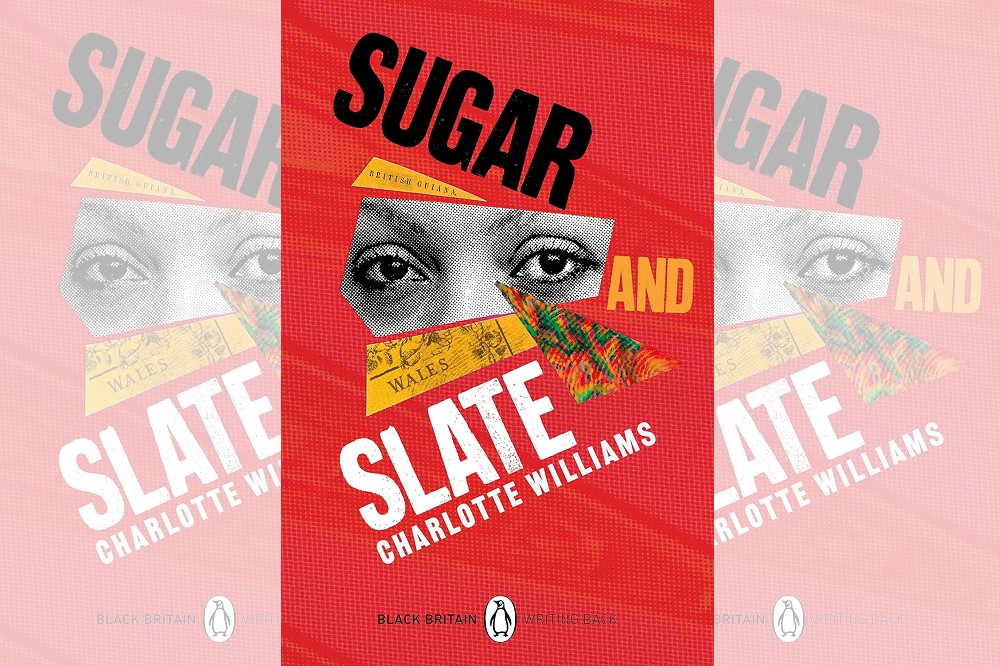Review: Sugar and Slate by Charlotte Williams

Jon Gower
It’s been two decades since this continents-spanning account of self-discovery was first published, a memoir in which Charlotte Williams explores her own identity as the daughter of a white-Welsh speaking mother and a black father from Guyana.
Much has changed since then, not least the Black Lives Matter movement and yet the books’ relevance today is undimmed and undiminished.
Re-reading it one finds oneself turning the pages of a bona-fide classic, chronicling a childhood in Llandudno where there was no such thing as ‘black’ as it ‘wasn’t that kind of place’ or, returning to north Wales as an adult, where Williams realises that ‘the idea of black Welsh wasn’t really lodged in the cultural consciousness or in fact in the cultural memory.’
Forgotten history
One facet of this forgotten, or even unconsidered history was the ‘ingenious coupling of a hunger for iron in Africa with the sudden need for extra labour on the West Indian sugar plantations ‘and the evolution of a malignant trade:
The African iron hunger was fed and strengthened by the trade in human beings – thousands upon thousands transported to Barbados, Jamaica, the Haiti and Demerara – the great movement of human cargo’ which allowed the iron masters to grow wealthier and wealthier, ‘ploughing back the profits of spices and sugar and slaves to make more and more iron bars and then manacles, fetters, neck collars, chains, branding irons, thumb-screws.
In limbo
The book peregrinates busily, visiting a childhood in Nigeria where the ‘afternoons are over when the six o’clock flower opens its evening face, taking in Guyana – where ‘one heat-filled day climbs upon another and the former slate quarrying area of north Wales.
At one point Williams suggests she ‘would need to change her perception of what it was to be Welsh or what it was to be Guyanese’ or never feel the satisfaction of belonging to either, remaining in limbo like a passenger in transit at an airport.
It was a feeling that ‘somehow to be half-Welsh and half Afro-Caribbean was always to be half of something but never quite anything whole at all.’
Vivid
Sugar and Slate is animated by vivid glimpses of daily life and the wider culture of all of the places along Williams’ life-route, with pulsing, bravura writing about dances in Georgetown where a loud and ‘solid block of music falls out of Matt’s Record Bar’ tempting in customers to enjoy ‘Chutney music, the multicultural mix of Indian style over-laid on the steady ragga beat.’
Then there is the end-of-year celebration on the university campus at Turkeyen where the music is amplified to the point of distortion and dancers jump up among banks of beer crates, soon vibrating to the sexual overtones of music that ‘binds them all in a universal language that never stops.’
Word paintings
Williams’ father Denis was a distinguished artist, a fact that seems to inform the writing here as places are painted into being, such as the sight of Trinidad from a night-time departure ‘sparkling like a discarded carnival outfit on a navy blue carpet’ or, in a party, the sight of ‘plantain chips like yellow roulette discs tinkling over the sides of perspex bowls.’
Or this description of following some girls onto a Guyanese minibus, to ‘sit close to them examining their nails, smelling the sweetness of them; a hint of the thick coconut smell similar to that which rises off the yellow gorse hills in May back in Wales.
Their skins are soft caramel, mocha, nut brown, chestnut, grape-black. Their high cheekbones give them a haughty look. Not a hair is out of place; styled, stretched, coiled and curled.’
Delightful
There is a delightful description of a night in Llandudno, too, one of those quiet nights when ‘a small haboob was mustering, whipping up the winds on the West Shore, driving out the lovers nestling in our dunes. It can be that way in the Naples of the North.’
It’s a wind that picks up enough speed to steal through an open window and lift the manuscript pages of father Denys’ manuscript, one by one and scatters them out into the seaside air, where the family give chase to the pages in their night-clothes.
Race riots
Mixing memoir and travel, poetry and diary entries, the book also takes us deep into black Welsh history, noting it was home to one of the first interracial marriages in Britain in 1768 as well as the site of Britain’s first major race riots, in Cardiff in 1919.
The latter, in turn ‘triggered an upsurge in black consciousness in the West Indies and a major insurrection against British colonialism all over the Caribbean.’
We also learn about the Congo Institute, later the African Institute in Colwyn Bay, where young men from countries such as Liberia and Cameroon studied scripture and were given local apprenticeships to learn practical skills.
Honesty
Bernardine Evaristo, who selected the new series of books in which Sugar and Slate appears, opines that she ‘had never read a memoir quite like this before.’
Given its busy, hybrid mix of literary forms and the searching honesty with which the author probes her own life one can only fully echo that sentiment.
It is indeed quite unlike any other such journey of self-discovery as it ponders matters of racial marginalization in a country which is itself on the margins.
Sugar and Slate by Charlotte Williams is published by Penguin. It is available from all good bookshops.
Support our Nation today
For the price of a cup of coffee a month you can help us create an independent, not-for-profit, national news service for the people of Wales, by the people of Wales.







